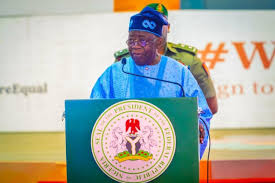Mike Kebonkwu
The world would have received the news of the truce signed between the federal government and the Boko Haram insurgents with cautious elation. This certainly would bring a new lease of life especially to residents of the North-east, the area hardest hit by the blood thirsty sect. The group had dislocated the normal life of the entire north-eastern Nigeria turning it into a killing field for the past five years. Now the spectre of the group has grown beyond what the government could blunt or degrade as they have already claimed territories and hoisted their jihadist flags collecting revenues from the locals.
The Boko Haram has been portrayed to be better armed and equipped over and above the scale of equipment holding of the Nigerian Armed Forces. We have found this a justification for the failure and inability of the armed forces to contain the miscreants who fought with greater conviction and commitment. How they acquired their weapons and brought them into the country with the ubiquitous security networks across the nooks and cranny of the country beats one’s imagination. We should therefore be asking fundamental questions about the competence of the security and intelligence community in gathering critical intelligence for the safety and security of the country.
There has been scepticism about the truce knowing that the sect has acquired a notoriety of a trans-border terrorists group. Their support and revenue bases are traceable to both internal and external sources possibly from disgruntled politicians and Al Qaeda in the Maghreb. This therefore means that any serious negotiation can only be carried out if we tear the façade and unveil those behind the sect with the aim of knowing and settling whatever be their grievances; otherwise, the whole thing would be exercise in futility.
The manner of government negotiation and acceptance of the ceasefire appears hazy and suspect. First, there was no clear cut and articulated framework to deal with the crises. The government appears caught in the web of domestic and global campaigns against its jelly-footed method in fighting the insurgency. This truce with the insurgents therefore appears like a desperate and calculated political move with 2015 in view. This is because some groups are already tying their electoral support to the release of the Chibok girls and an end to insurgency in the North-east.
As if the move of the government in this truce business was not an issue of concern enough, the speed with which the Defence Headquarters directed immediate compliance with the ceasefire and truce calls to question any serious interest on the part of the military to prosecute the campaign against the insurgents. It was like a heavy weight boxing champion dazed and drunk from the punches of a challenger and waiting for the knell only for his manager to throw in the towel to save him from further punishment. Why would professional armed forces employ the use of armed local vigilante to fight alongside its officers and men in internal security operations of low intensity conflict? If the military had limited the role of the vigilante group or what they referred to as the “Civilian Joint Task Force” (Civilian JTF) to intelligence gathering, it would have been understandable as acceptable global practice. But to allow them carry arms openly and fight alongside the regular army would appear to offend basic and elementary rule of the International Humanitarian Law.
Another issue is the timing of the ceasefire. It came only when we were told that the military had received supplies and now better prepared to give the terrorists a bloody nose. Ceasefire without disabling their capacity to take on the state is just incubation for a more vicious campaign in no distant time. There have been about three schools of thoughts with their theories on how to contain the menace of the group. One is that the government should dialogue with the sect and pacify them. The other is that a full scale military action should be brought to bear on the sect. The last is of the view that the carrot and stick approach should be employed; which of course is a combination of the first two. The pacifists who feel that dialogue is the best option would want to carry their drums to the market at the announcement of ceasefire and truce. Indeed, they may have their strong point because from all indications, victory on the military front appears too remote and almost unrealizable.
If we are serious about tackling insecurity then we should not ignore the army of unemployed youths who remain veritable source and feeder to the criminal networks. Insecurity in Nigeria goes beyond truce and ceasefire with Boko Haram. Our government should stop the insurgency in the North-east as well as all parts of Nigeria. We should not look for political capital from the release of the Chibok girls. The government is duty bound to bring back our girls and if that is achieved today, it is not a great feat.
Kebonkwu Esq wrote from Abuja



